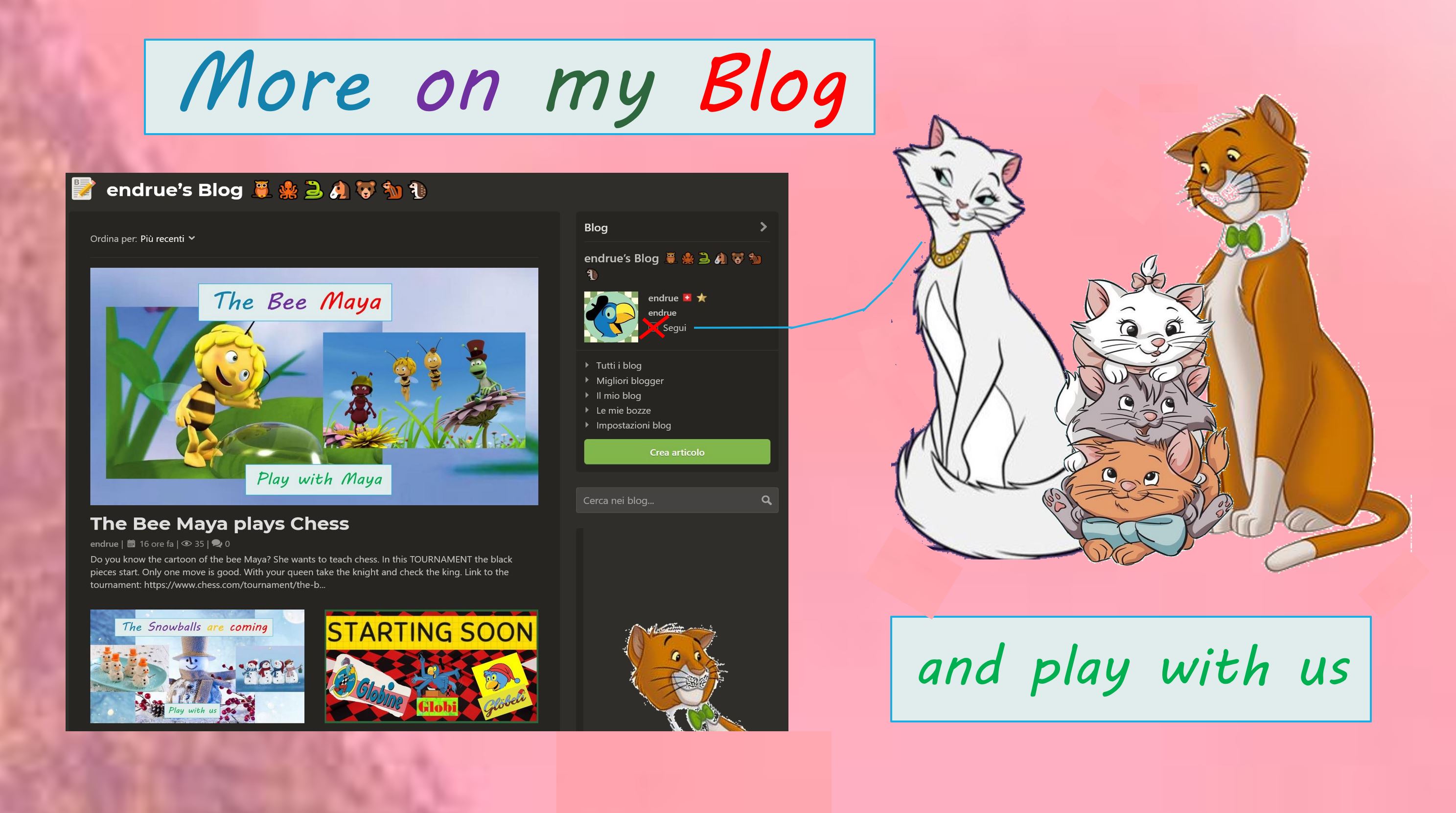
How we learn to be brave
 Chess is an inspirational game for to gain brave. Do you want to be more courageous? Bravery isn't something you're born with. You acquire it over time as you gain life experiences. You can practice being brave by acting on what your heart tells you to do and challenging yourself with new experiences, even when you're afraid. It can take a little time and a lot of patience with yourself, but with a positive attitude and helpful ways of thinking, you'll find yourself becoming braver than you ever thought possible.
Chess is an inspirational game for to gain brave. Do you want to be more courageous? Bravery isn't something you're born with. You acquire it over time as you gain life experiences. You can practice being brave by acting on what your heart tells you to do and challenging yourself with new experiences, even when you're afraid. It can take a little time and a lot of patience with yourself, but with a positive attitude and helpful ways of thinking, you'll find yourself becoming braver than you ever thought possible.  Bravery doesn't mean that you're never afraid. It means that you're afraid, but you move forward anyway, even in the scariest moments. When you try to push emotions away, they often just become stronger. Instead, acknowledge that you feel the way you feel. You will be able to better deal with your emotions when you're honest about them.
Bravery doesn't mean that you're never afraid. It means that you're afraid, but you move forward anyway, even in the scariest moments. When you try to push emotions away, they often just become stronger. Instead, acknowledge that you feel the way you feel. You will be able to better deal with your emotions when you're honest about them. Bravery requires you to be “tough” when you encounter scary or difficult situations. Cognitive flexibility is the ability to adapt to changing situations. It's the ability to stay away from defensiveness if something goes wrong. It's the ability to look for new ways to approach a problem or situation. You can develop flexibility by recognizing the potential for learning in all situations, and by developing a mindset of curiosity rather than worry.
Bravery requires you to be “tough” when you encounter scary or difficult situations. Cognitive flexibility is the ability to adapt to changing situations. It's the ability to stay away from defensiveness if something goes wrong. It's the ability to look for new ways to approach a problem or situation. You can develop flexibility by recognizing the potential for learning in all situations, and by developing a mindset of curiosity rather than worry. 
In order to be brave about a situation, you have to face it. Truly brave people examine the situation and identify how to approach it, rather than trying to run away or ignore the problem. Breaking down a situation into smaller elements can help you face troubling situations. You can also try to imagine the best possible scenario, rather than the worst possible one. Things may not always go smoothly. Brave people understand this and get back up when they fall down. You can help yourself become persistent by defining what actions you need to take every step of the way.
If you're facing a situation that might mean making a brave but difficult decision, take some time to think it over. If you feel strongly about what needs to be done, you can use that to help boost your courage in the moment. Conviction is a major factor in courage. 
Ask yourself:
- Is this the right move to do? The right move isn't always the easiest, nor the most popular. Rely on your conscience to help you decide.
- Is this the only move to resolve the situation? Consider whether there are other ways to get around your problem. Is there a workaround you haven't thought of yet?
- Are you prepared to face the consequences? If the action you're about to do has huge consequences, take an extra second to think about it. If the worst-case scenario happened, would you be able to handle it?
Learning to tolerate the uncertainty and discomfort of certain situations is a constant learning experience. You won't be brave overnight. But “putting on a brave face,” even when you're not feeling brave, can help you become braver. 
Watch also the film on youtub:
https://www.youtube.com/watch?v=4PwDFddpo4c New Tournaments for to learn to be brave
New Tournaments for to learn to be brave

 You will find on
You will find on